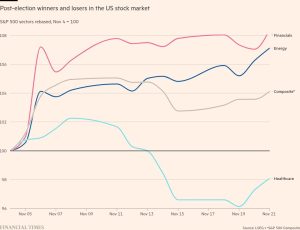Indian appetite for Swiss watches grows
Swiss watch exports have fallen this year, but one market is showing strong growth: India. Exports to the country rose 20 per cent in value, year on year, in the first seven months of 2024 to SFr139.5mn ($165mn), compared with a 2.4 per cent fall globally. And that export value represents a 41.4 per cent increase on the same period in 2022 — the largest rise recorded by the Federation of the Swiss Watch Industry for any market, over such a timescale.
Now, a trade deal is set to make watch exports even easier. In March, India signed an agreement with the European Free Trade Association to phase out custom duties on Swiss watches (about 20 per cent) within seven years and give improved protection around the use of the terms “Swiss” or “Switzerland”.
India is, in many ways, an ideal watch market. It was the fastest-growing major economy in last month’s World Bank update, and one in which the number of millionaires (in US dollars) will rise 22 per cent between 2023 and 2028, to 1,061,463, according to the latest UBS Global Wealth Report. The Deloitte Swiss Watch Industry Study 2023 flagged the country as the “next big growth market”, and found that 94 per cent of Indian consumers wear a watch (in the US, it is 79 per cent).
“As the population is getting more wealthy and developing, and the luxury market is exponentially growing compared with the consumer market, there’s an upgrade [in the watches people buy],” says Karine Szegedi, consumer industry and fashion and luxury lead at Deloitte Switzerland, and the study’s co-author.
Watchmakers are expanding their retail presence. IWC opened its first boutique in India, at Jio Mall in Mumbai, last November. Then Breitling launched boutiques in Chennai and Pune earlier this year, having opened its first Indian store in Hyderabad in 2023. It plans to have boutiques in each of the country’s top eight to 10 cities.
This focus comes amid a slump in sales in China, the second-largest export market for Swiss watches. There, the value of exports fell 23.2 per cent, year on year, between January and July, to SFr1,269.5mn. “We’re being asked if [India] will be offsetting the maybe softer results in China,” says Szegedi. “Not yet, because it’s an immature market . . . We believe that now, as well, with the EFTA agreement, you have to enter it to test it and see how the market responds to your brands.”
Gerald Charles started working with Ethos Watches, an Indian retailer, in Delhi and Mumbai last November after noticing rising demand from rich Indians who were travelling to, or had homes in, Dubai. It launched in two further locations, Bengaluru and Kochi, last month. Federico Ziviani, Gerald Charles chief executive, says there will be a fifth opening next year — bringing the brand, which he says makes 1,500 watches a year, to capacity for the country .
He says the Indian market, where the brand’s emerald green watches are popular, is robust because it is driven by internal demand. “Thinking about what happened during Covid, where travelling was blocked, only the strong local markets performed well,” he says. “So that’s why it’s so important to be in India, rather than selling to Indian collectors from abroad, because this creates a service to them, because they have the watch right at [their] doorstep. [It also] creates robustness in case of any geopolitical or economic changes.”
Ziviani says the challenge in a country of 1.4bn people is getting the watch “on the right wrist”. “We have the advantage that the Gerald Charles watch . . . is very polarising,” he says. “You hate it or love it . . . so there is a strong component in the client choosing us.”


Cricket — a sport beloved in India — is influential in growing brand awareness. Panerai previously had former India captain MS Dhoni as an ambassador and collaborated with him on two limited edition timepieces exclusive to the Indian market in 2019. Mohit Hemdev, Panerai brand manager for India, says this “really helped the brand get the right kind of visibility in the market”.
Jean-Marc Pontroué, chief executive of Panerai, says exposure through cricket and the “evolution” of India meant the time was right for expansion. “You see the number of planes this country is ordering, the new facilities built, new industries growing — that is contributing to the development of the country, which creates a growing affluent customer group,” he says. However, he says Panerai’s growth will depend on “the speed of the luxury industry” — such as the development of malls.
Panerai opens its fourth India boutique, in Bengaluru, this month. The brand also has 10 points of sale across six cities with partners including TimeVallée, the Richemont-owned multi-brand retailer. Pontroué says Panerai has tripled its business in India since 2018. “It’s by far the fastest-growing nationality we see appearing more and more with knowledge of luxury watches,” he says.
Pontroué says that, while India has a long association with jewellery, the more recent appetite for high-end watches is driven by interest in gold, jewellery watches, and Switzerland. Hundreds of Bollywood films have been at least partially shot in Switzerland, against scenic backdrops such as the Alps. “[For] a lot of Indians, their first or second European destination to visit becomes Switzerland,” says Hemdev.

Rado, which has worked with Indian Bollywood actor Hrithik Roshan since 2011, took on British Bollywood actress Katrina Kaif as an ambassador last October to target female customers. Adrian Bosshard, Rado chief executive, says there has been an “overproportion increase” in its women’s watch segment in India this year and last.
Other brands are seeking to attract clients with special releases. Carl F Bucherer launched a Heritage BiCompax Annual Hometown limited edition dedicated to New Delhi, featuring city landmarks engraved on the case back, with Ethos Watches in June. Raymond Weil, which has traded in India since the early 1980s, launched the Freelancer Ganges India limited edition last October to celebrate 20 years of its own collaboration with Ethos.
Rado saw India overtake China as its largest market for sales about two years ago, says Bosshard. The brand has 33 boutiques in India and more than 200 other points of sale. Bosshard says Rado has built “customer confidence”, which helps as Indian consumers “are very cautious to have value for money”. For this reason, the brand’s ceramic watches are popular, he says, because their “scratch resistance” means they have “a long-term beauty on your wrist”.
An informal survey of about 100 partners and directors from Deloitte Consulting in India in July found that, while Rolex was the most recognised Swiss watch brand, it was followed by Swatch Group houses Omega, Tissot and Rado, respectively, showcasing the early investment that group made in the market. Popular high-end brands, including Patek Philippe, Audemars Piguet and Richard Mille, did not feature in this top 10 for brand recognition in India.
Bosshard compares the situation in India to what he saw in China 20 years ago. “Purchasing power is growing and, of course, in this kind of environment people want to celebrate themselves.”
One opportunity identified in the Deloitte Swiss Watch Industry spotlight on India, from July, is to tap into wedding gifting. It found 40 per cent of Indians planning to buy a watch within 12 months would do so for a present, compared with 27 per cent globally.
Deloitte’s 2023 study predicted India would be in the top 10 of Swiss watch export markets within a decade. It was 22nd in July. However, Bosshard would not be surprised if this happened within seven, or even five, years.
#Indian #appetite #Swiss #watches #grows



